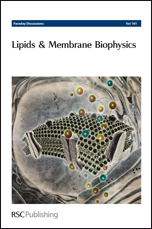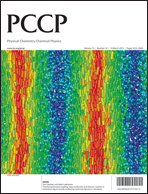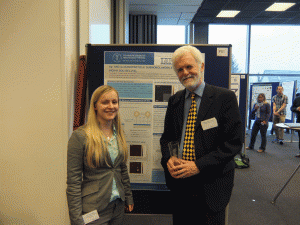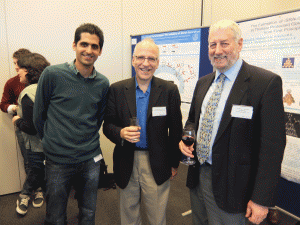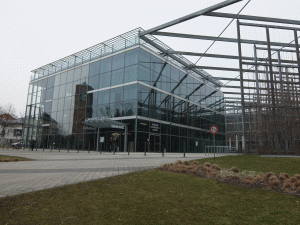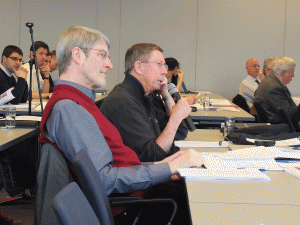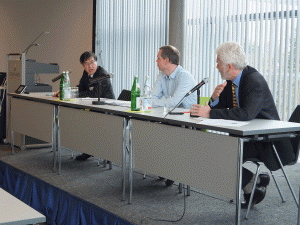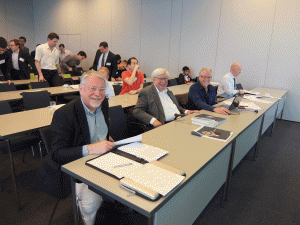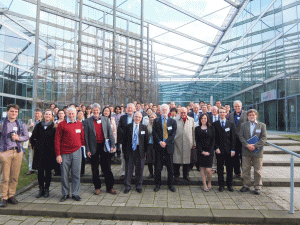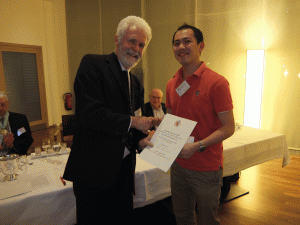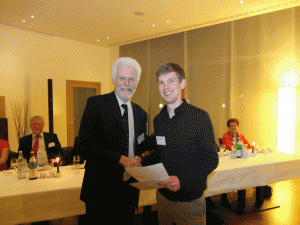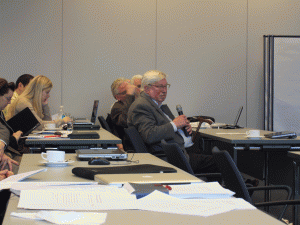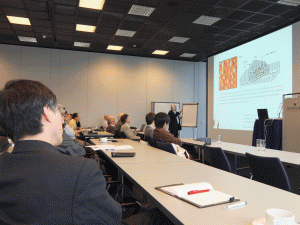Call for oral abstracts – deadline 29 July 2013
![]()
We invite you to join us for Faraday Discussion 170, which will cover:
- Mechanochemistry of organic molecules and soft organic molecules
- Mechanochemistry of inorganic compounds and coordination-based materials
- Sonication and macromolecular mechanochemistry
- Mechanistic understanding, catalysis and scaling up of mechanochemistry
Speakers include:
- William Jones, University of Cambridge, UK
- Anthony Cheetham, University of Cambridge, UK
- Leonard MacGillivray, University of Iowa, USA
- Laszlo Takacs, University of Maryland, USA
- Dario Braga, University of Bologna, Italy
- Nair Rodriguez-Hornedo, University of Michigan, USA
- Stephen Craig, Duke University, USA
- Jeffrey Moore, University of Illinois at Urbana-Champaign, USA
- Vladimir Šepélak, Karlsruhe Institute of Technology, Germany
- Kenneth Suslick, University of Illinois at Urbana-Champaign, US
Faraday Discussions are a long-established series of meetings which provide a unique international platform for the exchange of views and newly acquired results in developing areas of physical chemistry, biophysical chemistry and chemical physics.
All the presented papers and the discussion, including new research presented by any delegate, are published together in the Faraday Discussion volume. The latest Impact Factor is 5.0.
***************************
Physical Chemistry Chemical Physics (PCCP) is a sister journal to Faraday Discussions. PCCP brings you content of the highest quality in physical chemistry, chemical physics and biophysical chemistry.
We invite you to submit your research to PCCP today
Articles from PCCP in this area include:
Dynamics of the intermolecular hydrogen bonds in the polymorphs of paracetamol in relation to crystal packing and conformational transitions: a variable-temperature polarized Raman spectroscopy study
Boris A. Kolesov, Mikhail A. Mikhailenko and Elena V. Boldyreva
DOI: 10.1039/C1CP20139E
Electrochemical insertion of lithium in mechanochemically synthesized Zn2SnO4
Sebastian M. Becker, Marco Scheuermann, Vladimir Sepelák, Andreas Eichhöfer, Di Chen, Reiner Mönig, Anne S. Ulrich, Horst Hahn and Sylvio Indris
DOI: 10.1039/C1CP22298H
Monitoring selected hydrogen bonds in crystal hydrates of amino acid salts: combining variable-temperature single-crystal X-ray diffraction and polarized Raman spectroscopy
Boris A. Zakharov, Boris A. Kolesov and Elena V. Boldyreva
DOI: 10.1039/C1CP20599D
Mechanically activated rupture of single covalent bonds: evidence of force induced bond hydrolysis
Sebastian W. Schmidt, Alfred Kersch, Martin K. Beyer and Hauke Clausen-Schaumann
DOI: 10.1039/C0CP02827D
















